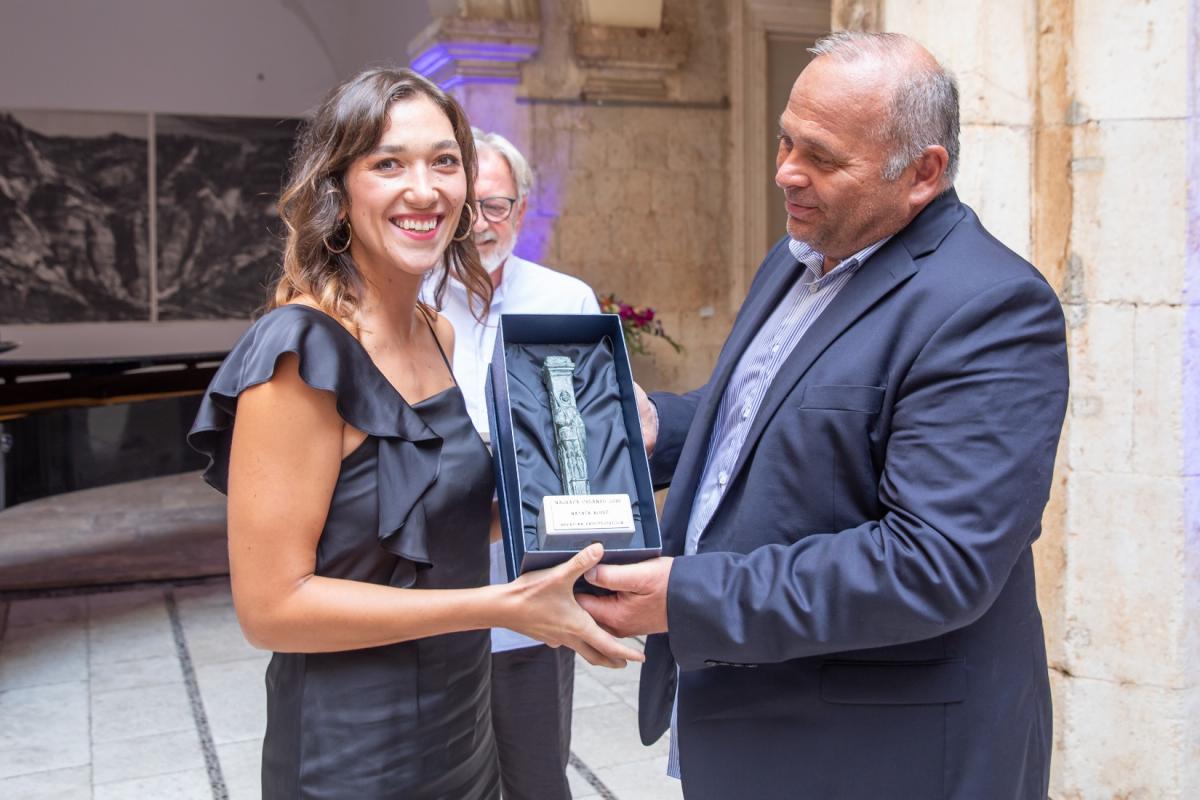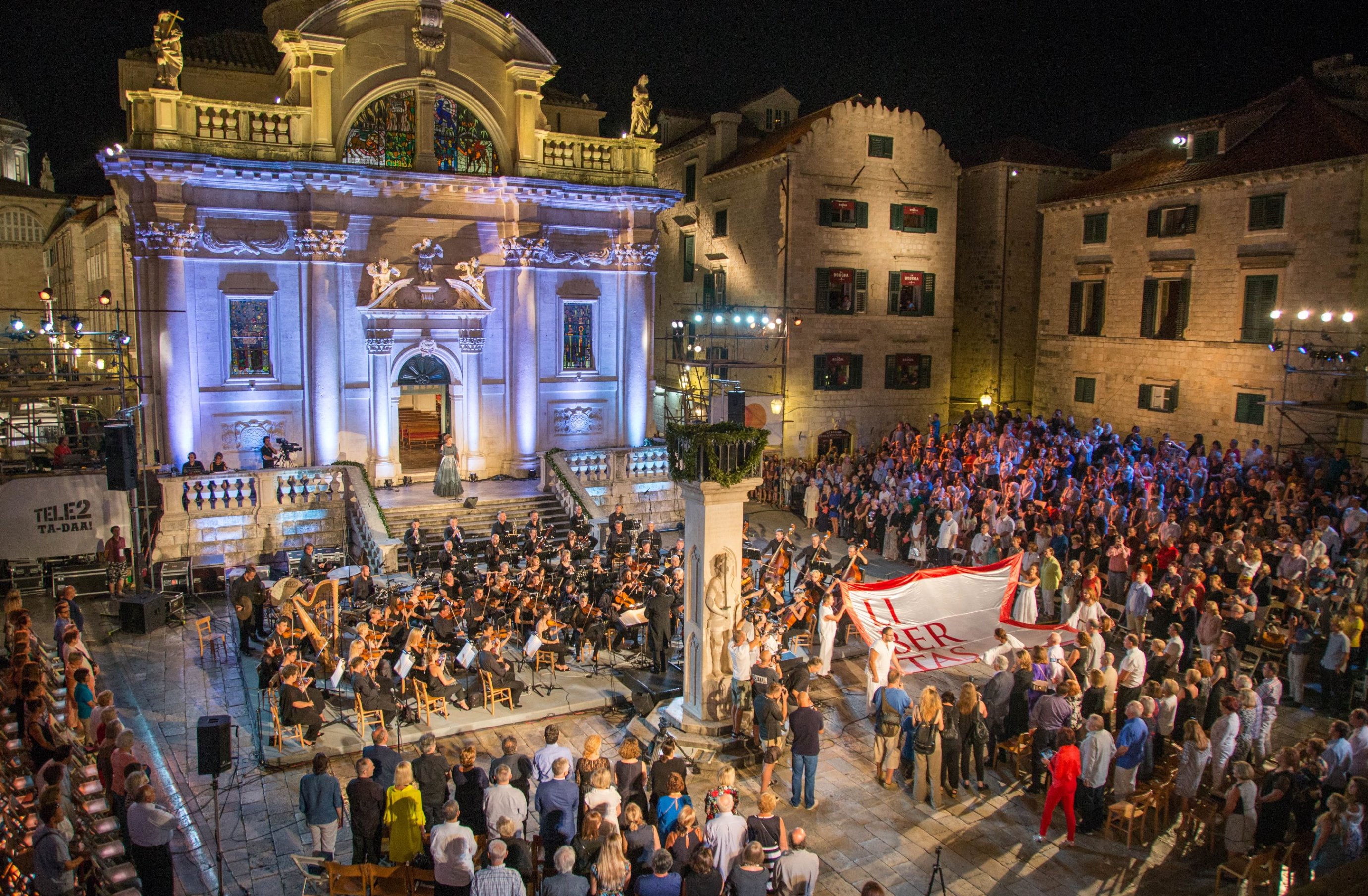
The Dubrovnik Summer Festival has gathered almost 2,000 artists from all over the world who presented 86 drama, music, dance, folklore, film, art and other programmes in 47 days, from 10 July to 25 August at 30 site-specific venues and stages of Dubrovnik to the international audience of approximately 60,000 domestic and foreign guests. On the last day of the Festival a press conference was held at the Sponza Palace Atrium, where the Festival programme was commended by Nina Obuljen Koržinek, Croatian Minister of Culture, Mato Franković, Mayorof Dubrovnik, and Žaklina Marević, Deputy-Prefect of the Dubrovnik-Neretva County. General Director of the Croatian Radio and Television Kazimir Bačić reviewed the collaboration of these two institutions, while Executive Director Ivana Medo Bogdanović and Artistic Director Dora Ruždjak Podolski presented programme and business results of this festival season. The winners of the Orlando Award of the Croatian Radio and Television for best music and drama achievements of the 69th Dubrovnik Summer Festival were announced after the conference.
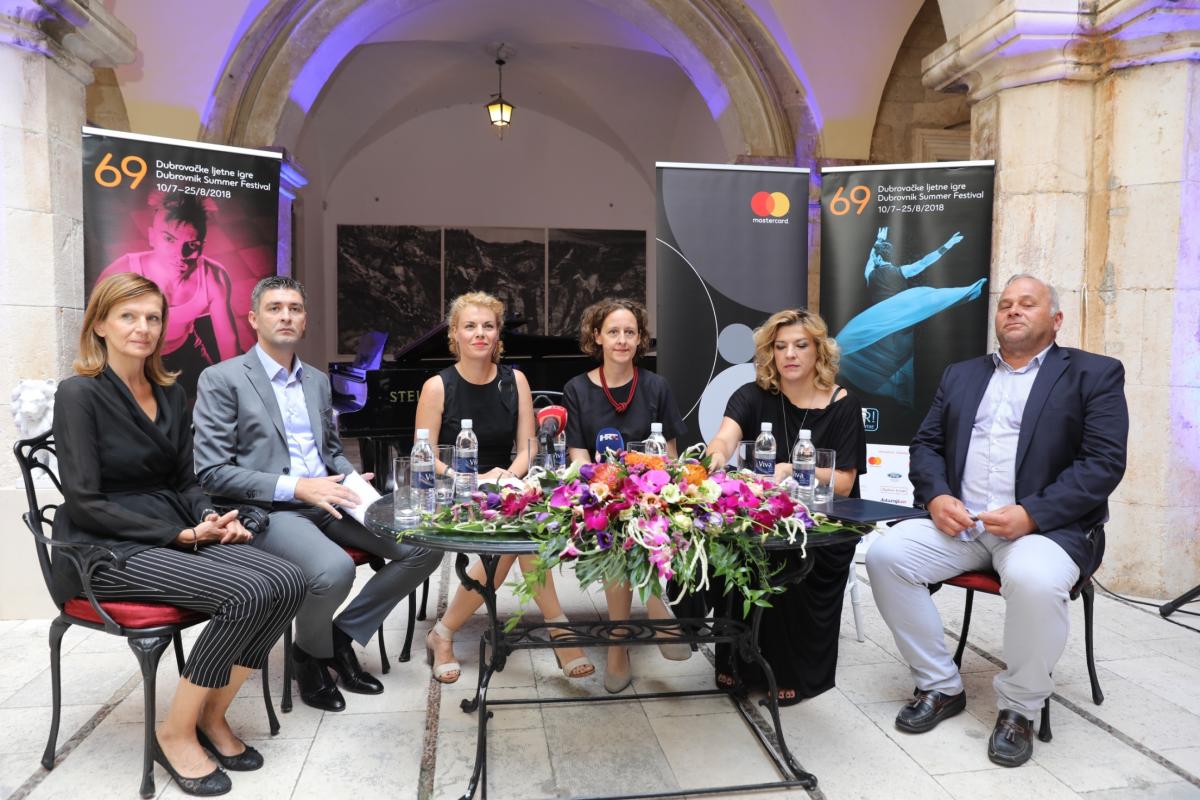
The first drama premiere of the 69th Dubrovnik Summer Festival, Michelangelo by Sebastijan Horvat and Milan Marković Matthis, based on Miroslav Krleža’s expressionist drama Michelangelo Buonarroti, directed by Sebastijan Horvat, a co-production of the Festival and the Croatian National Theatre Ivan von Zajc of Rijeka, was performed under the sponsorship of HEP on 27 July in the Benedictine monastery ruins on the Island of Lokrum, and it was considered by many a play for ‘theatre aficionados’. The mighty Michelangelo will also open the season at the Croatian National Theatre Ivan von Zajc in Rijeka on 22 September this year. In collaboration with the Zagreb Academy of Dramatic Arts, the play Countdown – at a Wedding with Držić and Nalješković directed by Lea Anastazija Fleger, Marina Pejnović and Hrvoje Korbar and performed by students of the Acting Department of the Zagreb Academy of Dramatic Arts was premiered at the Minčeta Fort. It marked the end of a months-long project that explored wedding plays and redefined the idea of site-specific theatre, and which included the works of Marin Držić and Nikola Nalješković. The third drama premiere of the 69th Dubrovnik Summer Festival was the play Under the Balconies directed by Dario Harjaček and dramatised by Vedrana Klepica, based on Ranko Marinković’s novellas from the collection Under the Balconies, which was performed on 18 August at the University Park. Ranko Marinković’s influence on Croatian theatre through his dramas and years of teaching at the Zagreb Academy of Dramatic Arts is immense, although only two of his works were staged at the Festival, Zagrljaj in 1959 and Glorija in 1980. It is no surprise then that the Festival audience welcomed Marinković’s return to the Festival after almost forty years. The first Dubrovnik performance of Correcting Rhythm, a co-production of the BADco. performance collective, the Drama of the National Theatre of Zagreb and the Festival, took place at the Dubrovnik Harbour warehouse. Forty years after the publication of Pavao Pavličić’s story The Good Spirit of Zagreb, Goran Ferčec’s text returns to the theme of obsession with the rhythm of city life and the role of crime in it. Staging in Dubrovnik required some adjustments to the location of performance, in context of stage design as well as in context of Dubrovnik as opposed to Zagreb. Marko Tadić’s installation the shifting meaning and BADco.’s installation Time Bombs were presented at the same venue in Gruž Harbour warehouse. The programme of the 69th Festival included sold-out repeat performances of last year’s hit play Marin Držić - Victory over the Enemies by Hrvoje Ivanković, directed by Ivica Boban and performed by the Festival Drama Ensemble.
The drama programme of the 69th Festival included some of the best recent Croatian theatre productions. Kristian Novak’s Black Mother Earth, dramatised by Tomislav Zajec, directed by Dora Ruždjak Podolski and performed by the Zagreb Youth Theatre triumphed at the last Croatian Theatre Awards. In the meantime, the play was presented at many theatres and festivals and it won over ten awards at various festivals, while Dubrovnik audience saw it on the Island of Lokrum on 16 July. The successful production of the National Theatre of Zagreb, Mate Matišić’s Men of Wax directed by Janusz Kica closed this year’s Festival drama programme at Gradac Park. Lero Student Theatre traditionally participated in the Festival, and this summer they presented their most recent production Small Bouquets and Pearls dedicated to Marin Držić, directed by Davor Mojaš.
This year, the Ballet of the Croatian National Theatre of Split has performed at the Dubrovnik Summer Festival for the first time in history. They received ovations from numerous audience for their performance of the acclaimed ballet Death and the Dervish based on Meša Selimović’s novel, choreographed by Igor Kirov, with Goran Bojčevski as the author of music. The audience enjoyed the ballet two nights in a row, and they also had the opportunity to see the Bitef Theatre’s dance production Macbeth choreographed by Miloš Isailović and performed by Bitef Dance Company at the Revelin Fort. The Berlin-based choreographer and performer Clément Layes presented his interdisciplinary play Title at the same venue, right after presenting it at the Venice Biennale. The youngest audience also enjoyed dance at the performance of the award-winning dance production Cartoon of Belgian choreographer Anton Lachky.
Carefully and originally conceptualised projects were the core of this season’s music programme and the initial impulse for the development of innovation following the Dubrovnik Summer Festival tradition, thus retaining the Festival’s poetic quality, but at the same time restoring its prominence. This has always made the Festival a world famous and attractive venue for both presenting and attending events, in addition to its proficient approach and presentation of top quality music projects featuring a variety of ensembles, periods and genres which share high artistic quality. The music programme was opened on the Island of Lokrum by one of world’s greatest cellists Mischa Maisky and the Zagreb Philharmonic conducted by Pier Carlo Orizio. At the Franciscan Church, the Dubrovnik Symphony Orchestra performed Mozart’s Grand Mass in C minor with the Oratory Choir of St Mark’s Church conducted by the young Russian conductor Maxim Emelyanychev, with soloists Leon Košavić, Ivana Lazar, Marija Kuhar Šoša and Krešimir Špicer. The Dubrovnik Symphony Orchestra also performed at the Rector’s Palace Atrium under the baton of Tibor Bogányi with violinist Marin Maras. The Schumann Quartet performed at the Rector’s Palace Atrium, as did the Ensemble 1700 with one of the world’s most renowned countertenors Andreas Scholl. This programme was proclaimed one of the top music events of the season by the critics and the audience. The lead clarinettist of the Berlin Philharmonic Andreas Ottensamer gave an excellent recital at the Rector’s Palace accompanied by pianist José Gallardo. Successful recitals were also given at the Rector’s Palace by Japanese cellist Yuya Okamoto, the winner of the Eugène Ysaÿe Award in the last year’s international Queen Elisabeth Competition, and Ivan Krpan, who has become one of the most successful Croatian pianists in history by winning First Prize in the Ferruccio Busoni International Piano Competition in Bolzano last year. This recital has made him one of Festival audience’s favourites. One of the highlights of this summer was definitely the piano recital of Daniil Trifonov, young Russian pianist who attracted numerous audiences to the Rector’s Palace, many of which came to Dubrovnik just for this concert. Quality music programme of the 69th Dubrovnik Summer Festival also presented the unique opportunity to hear eight guitarists perform in the crowded Atrium of the Rector’s Palace on 16 August. A varied and interesting repertoire was presented to the audience by Zoran Dukić, Petrit Çeku, Morana Pešutić, Tomislav Vukšić, Tvrtko Sarić, Krešimir Bedek, Pedro Ribeiro Rodrigues and Maroje Brčić in the programme entitled Guitarrismo, which also included the premiere of Gordan Tudor’s composition for eight guitars entitled Bašamar. Dubrovnik in tune, sailing was the title of another special music evening at the Rector’s Palace supported by the Caboga Stiftung Foundation, which included the performance of some of the best soloists of Dubrovnik, with Tomislav Fačini in the role of conductor and harpsichordist. The Caboga Stiftung Foundation also supported three seven-day international master classes held by violinist Stefan Milenković, baritone Krešimir Špicer and pianist Maria João Pires. Numerous audience had an unforgettable evening at the concert of American jazz diva and a multiple Grammy winner Dee Dee Bridgewater and the Croatian Radio and Television Jazz Orchestra conducted by Andreas Marinello, supported by Mastercard, on 18 July in front of the Cathedral.
In collaboration of the Dubrovnik Summer Festival and Adriatic Luxury Hotels, the Katona Twins guitar duo performed in concert at the new Festival location - the Vala Beach Club of Dubrovnik Palace Hotel, and French accordionist Vincent Peirani and saxophonist Emile Parisien performed at the same venue.
A unique project entitled Inside Out was presented at the 69th Dubrovnik Summer Festival on 4 August at two locations; the result of music collaboration of I.N.K. Experiment Duo with Miodrag Gladović and Réso-nance was first presented inside the City Walls, by the Onofrio Fountain, and later in the evening with Chui quartet in Orsula Park, where percussionists Ivana Kuljerić Bilić and Nikola Krbanyevitch performed two compositions written specially for this Festival programme, which was organised with the support of the Institut français.
Croatia’s rich dance and music heritage was presented to the audience by LADO, the National Folk Dance Ensemble of Croatia, with their new programme The Recruits are Coming, and by the Linđo Folklore Ensemble with their traditional performances on the Revelin Fort Terrace, with the addition of the premiere of Dr Ivan Ivančan’s new choreography Wedding Dance of Podravina, prepared for this Festival season. Four Linđo’s Festival performances were seen by around 1,500 thrilled domestic and foreign spectators.
The Sponza Palace hosted the exhibition of Josip Pino Trostmann’s works entitled Dubrovnik from Sveti Jakov with Two Palm Trees on the occasion of artist’s eightieth birthday, as well as group exhibition Horrors of Native Soil organised by the Festival in collaboration with the Art Workshop Lazareti, which presented the works of contemporary artists of Dubrovnik at multiple locations. Both exhibitions were part of the new Festival programme City Keys aimed at audience development, which is supported by the Ministry of Culture. This programme also included a conversation with authors Kristian Novak and Tomislav Zajec on the occasion of performance of the play Black Mother Earth and Dr Tanja Trška’s lecture Tracing the Myth of Michelangelo on the occasion of the premiere of the play Michelangelo. Premiere of Ranko Marinković’s Under the Balconies was accompanied by an exhibition and a conversation Beyond the Mediterranean: Ranko Marinković in Dubrovnik organised at the University of Dubrovnik, with the participation of Dr Morana Čale, Dario Harjaček and Vedrana Klepica. The round table entitled Space for Difference? Possibilities for Culture in Dubrovnik, co-organised by the Dubrovnik Summer Festival and Art Workshop Lazareti, gathered culture and creative professionals who, with Ana Žuvela as moderator, talked about the perspectives of developing and planning culture, about evaluation systems, cultural hegemony and the importance of preservation of cultural institutions. The participants expressed their interest in further conversations on these topics. City Keys brought plenty of activities for children, which were well attended and carried out with great success: Dubrovnik’s musicians performed Saint-Saëns’ Carnival of the Animals at the Sponza Palace, Jasna Held told folk stories and fairy tales from the vicinity of Dubrovnik at St Stephen’s Church in Pustijerna, Nenad Sinkauz held a music workshop Sound Factory, where he taught children the basics of improvisation, and curators of the Bukovac House, Lucija Vuković and Helena Puhara, with the assistance of artists Ivona Vlašić and Katarina Ivanišin Kardum, held an art workshop with the theme of perception of contemporary art. The goal of programmes for children is to develop their relation towards contemporary art and its creative processes through workshops and interactive, creative approach, and to sensitise them to contemporary art and the Festival, thus raising new theatre, music and art audience, which the Festival will continue doing in the following years.
The film programme of the Festival traditionally featured the winner of the Pula Film Festival, and this year’s winner was Lada Kamenski, directed by Sara Hribar and Marko Šantić, which premiered at the 65th Pula Film Festival and which, along with other awards, won the Federation of Film Critics of Europe and the Mediterranean (FEDEORA) Award for Best Croatian Feature Fiction Film and the Golden Arena for Best Leading Actress (Doris Šarić Kukuljica). The novelty in the film programme of the Festival was the collaboration with the Motovun Film Festival which brought two hidden film projections.
The honor of closing the festival was granted to the Croatian Radio and Television Symphony Orchestra, conducted by Daniele Rustioni, and top American harpsichordist Cameron Carpenter who has already left a significant mark in the contemporary music history with his exceptional musicality, infinite technical abilities and his pioneering spirit.
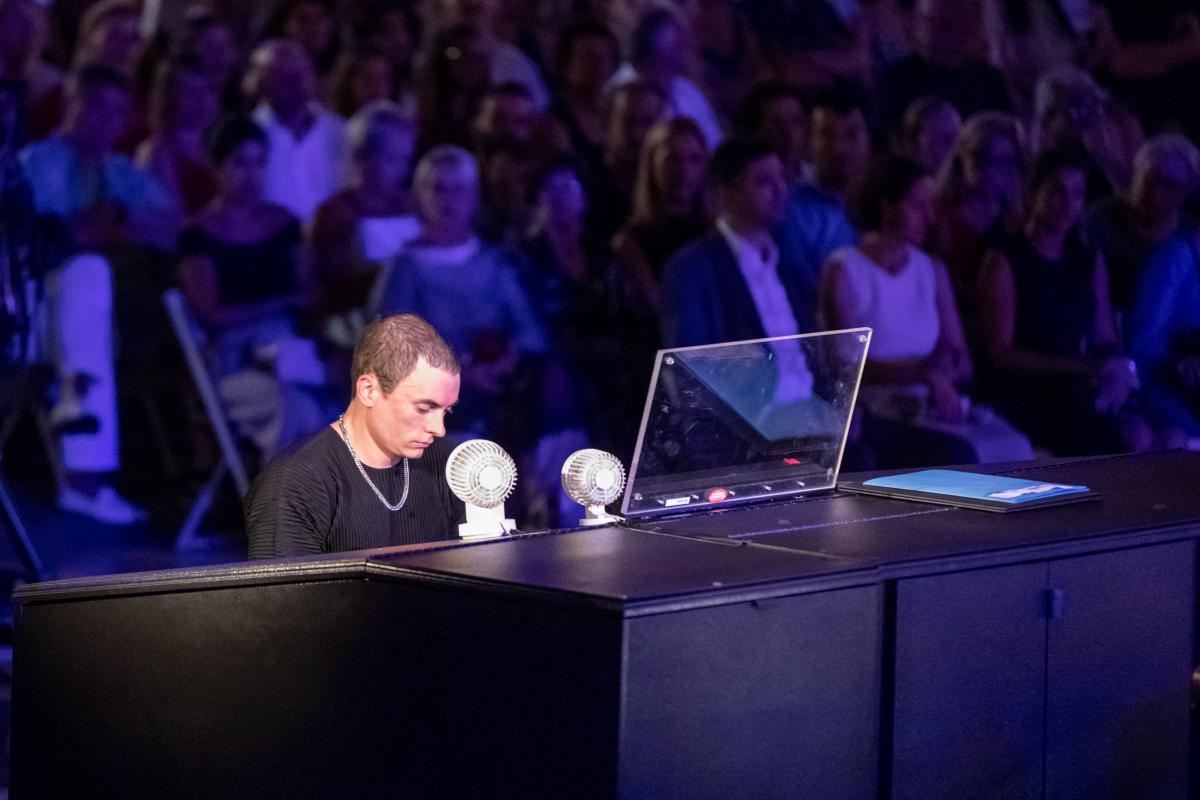
The Executive Director of the Festival Ivana Medo Bogdanović pointed out that this year’s budget was almost 7% bigger than last year, primarily due to increased income from new sponsors and donors, by almost 10%. Income from ticket sales, sponsors and donors constituted 44%, while public funding constituted 56% of the Festival’s budget. Medo Bogdanović expressed her gratitude to all those who support the Dubrovnik Summer Festival, without whom the successful realisation of the Festival would be impossible, and she specifically mentioned all city public institutions and city public utilities. This year, the Festival was supported by the Ministry of Culture of the Republic of Croatia, the City of Dubrovnik, the Dubrovnik-Neretva County, the Croatian National Tourist Board, the Dubrovnik Tourist Board as well as numerous sponsors: Mastercard, ALH, HEP, Tele2, Ford, Dubrovnik Airport, Croatia osiguranje, Croatia Airlines, Kraš, hotel companies Valamar, Maestral and others, Gulliver Travel, Clara Stones, Xenia Design, Viva Water. This year, the Festival was supported by the donations of Caboga Stiftung Foundation, OTP Bank and Atlantska plovidba.
The Artistic Director Dora Ruždjak Podolski said that ever since she arrived in Dubrovnik, she has enjoyed great support from all sides, especially from everyone involved in organisation of the Festival, and that this sense of community is very important to her. She added that the preparations for the next, 70th Festival are already underway, and that this great and important anniversary brings great responsibility. Mythical places and titles of the Festival will be the core of the 70th Festival, she announced. The Dubrovnik Summer Festival is a place of dialogue, which is the true role of culture, said Ruždjak Podolski and she also revealed that the Festival was granted European funds for another project, entitled Port of Dreamers, in which the Festival is the lead partner. This makes Dubrovnik Summer Festival one of the rare cultural institutions in Croatia, perhaps even the only one, which has two parallel projects within the Creative Europe framework.
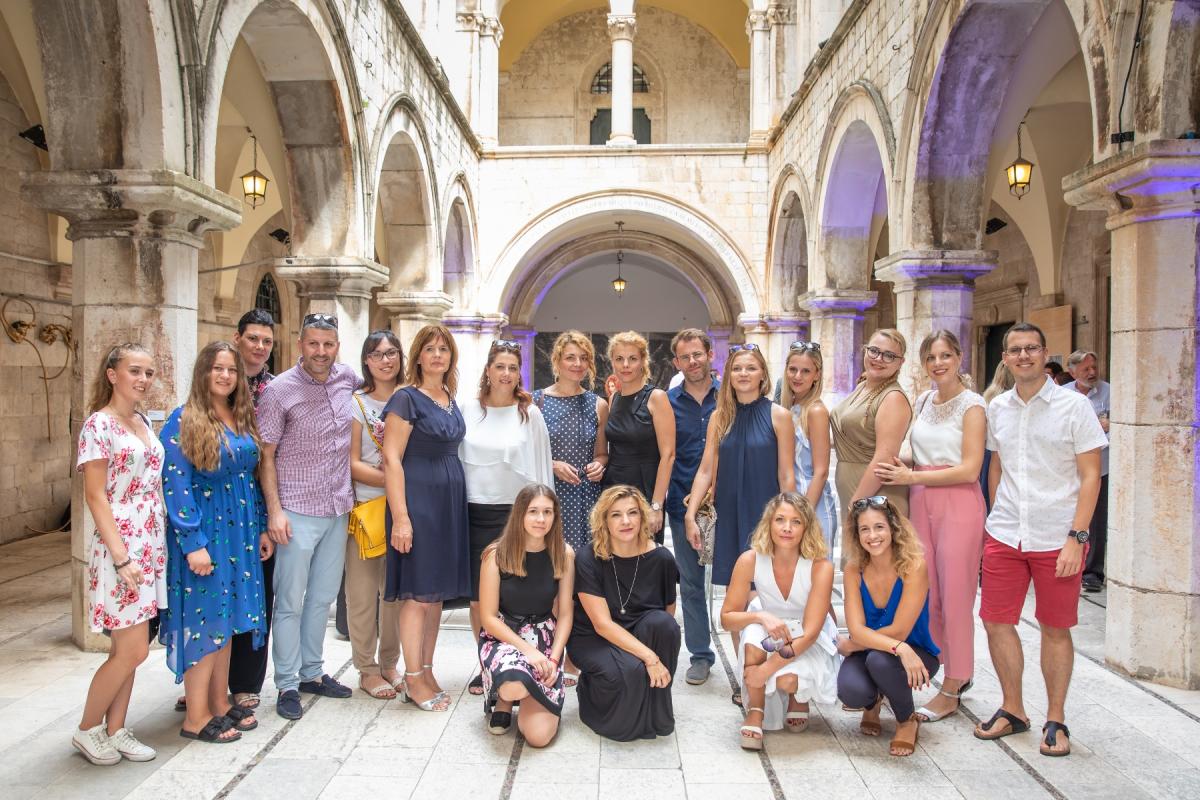
After the press conference held on the occasion of closing the 69th Dubrovnik Summer Festival, the Croatian Radio and Television announced the winners of the Orlando Award. Orlando for best music performance was awarded to Russian pianist Daniil Trifonov for the recital held at the Rector’s Palace Atrium on 6 August by the decision of the jury composed of Sanja Dražić - the President, Marija Grazio and Goran Merčep - members. Trifonov won the award ‘due to an intriguingly devised programme performed in the best possible way,’ and this ‘concert of extraordinary artistic value also had an exceptional atmosphere and it presented powerful artistic interpretations’. Orlando for best drama performance was awarded to Nataša Kopeč for the role of Oliva in Ranko Marinković’s play Under the Balconies directed by Dario Harjaček and dramatised by Vedrana Klepica and Dario Harjaček, by the decision of the jury composed of: Željka Turčinović - the President, Petra Jelača and Davor Mojaš - members. ‘The artistic creation of Nataša Kopeč is excellent in many ways,’ it was elaborated by the jury, ‘the movement, speech, personality and her entire being embody a young woman aware of herself and the great flaws of her surroundings, a person who does not hide unhappiness for the sake of social norms’. The Orlando Award is awarded under the auspices of the Croatian Radio and Television since 1992, and it has been awarded for 41 years for best music and drama performances of the Festival. Since 1978, the author of the Orlando statue awarded to the winners is Josip Poljan.
